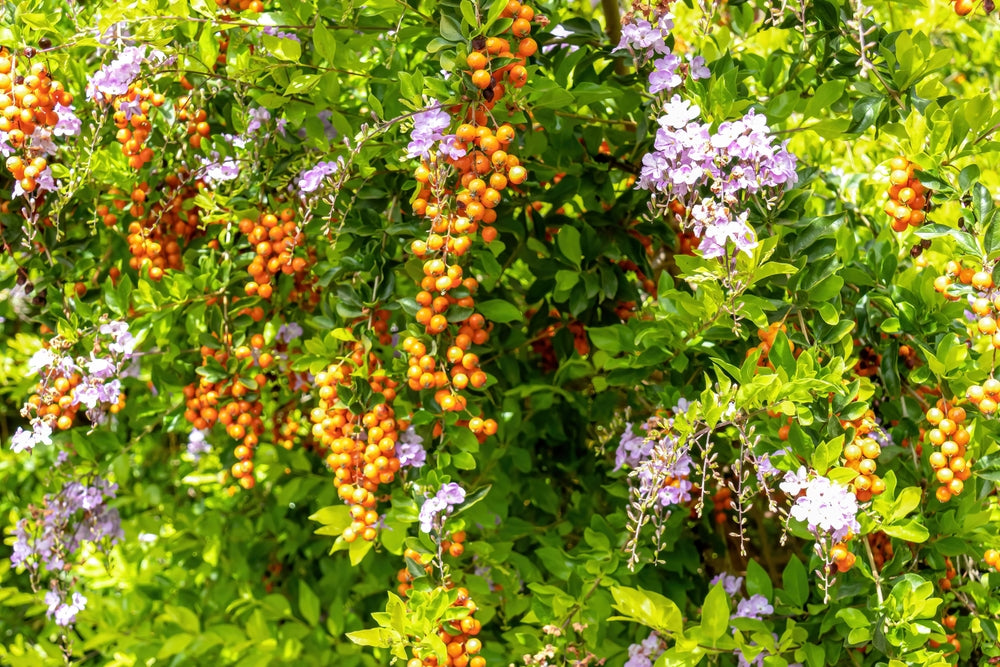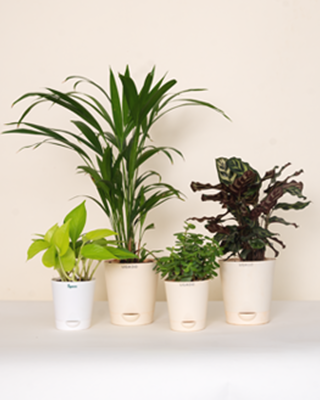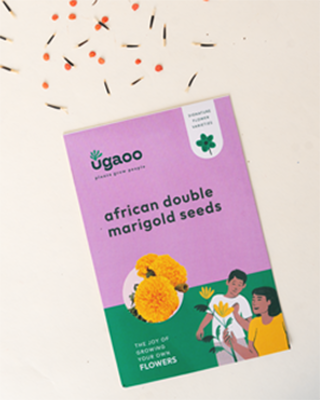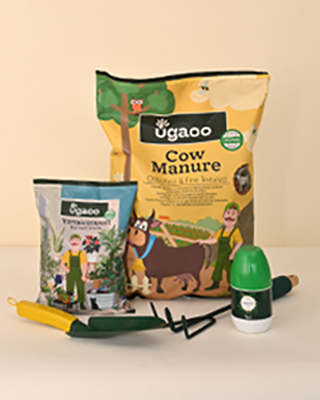Our world is rich in terms of the food it has to offer. From an endless variety of all types of eatables you can think of, to a bounty of fruity delights - we've got it all, worldwide. There is an unexplored palette of things just waiting to be tried and loved by us.
Coupled with this limitless variety, most foods also have astonishing and remarkable benefits. Out of all these beneficial foods, one noteworthy, natural delight is the Guava plant and its delectable fruit. 
With its fleshy, seed-filled interior and its tough rind, the Guava is more than just a simple fruit. It comes with its own set of benefits that will leave you stunned and wanting more. So, read on to find out what these benefits are and also how you can grow the Guava plant on your own to reap them!
• Origins of the Guava Plant
The guava tree originates from Central America, holding great significance in both historical and horticultural contexts. Its journey from its homeland – the tropical regions - to home gardens worldwide stands tall as a testimony to its great benefits and adaptability.
Ancient civilizations in Central America, like the Aztecs and Mayans, were quick to recognize the value of the Guava plant and often used it in their daily lives. The Spanish explorers played a crucial role in disseminating and transporting guava seeds to different parts of the world during the Age of Exploration.
• Guava Plant and its Benefits
1. Nutrient Powerhouse:
Guava fruits are rich in essential nutrients, including vitamins, antioxidants, and fiber, contributing to a healthy diet.
A single guava provides more vitamin C than many citrus fruits, supporting immune health. The fruit's high fiber content promotes digestion, and its diverse nutrient profile makes it a valuable addition to a well-balanced and nutritious diet.
2. Medicinal Properties:
The leaves of the guava plant contain medicinal properties, showcasing the plant's dual significance in both culinary and herbal traditions.
Guava's medicinal properties are attributed to substances in its leaves. Rich in antioxidants and anti-inflammatory agents, guava leaves have been traditionally used for treating various problems. They showcase antimicrobial effects, aiding in wound healing, and may contribute to managing conditions like diabetes and digestive issues.
Guava plant seeds and peel contain a lot of natural nutrients that have anti-cancer, anti-inflammatory effects, support the digestive system, improve diabetes and skin problems.
3. Adaptability:
Guava plants thrive in diverse climates, making them the perfect home garden plants and adding to their allure among plant and gardening enthusiasts.
They tolerate different soil conditions, making them versatile and suitable for most conditions. This adaptability extends to their resistance to various pests and diseases, making the Guava plant a resilient and low-maintenance addition to most gardening endeavors.
4. Digestive Health:
Guava fruits are known for their high fiber content, contributing to improved digestion and making them a valuable addition to a well-rounded diet.
Moreover, guava's digestive enzymes help break down complex nutrients, promoting a healthy gut and efficient nutrient absorption, making it an excellent choice for digestive well-being.
5. Culinary Delight:
Beyond its health benefits, the delicious taste of guava fruits adds a delightful element to both culinary endeavors and home garden harvests.
Here are the few different ways in which Guavas are consumed:
a. Fresh and Raw:
Simply sliced or eaten whole, fresh guavas are a delicious snack.
b. Juices and Smoothies:
Guavas are blended into refreshing juices and smoothies, providing a burst of flavor and vitamins.
c. Jams and Jellies:
Guava's natural sweetness makes it ideal for jams and jellies.
d. Desserts:
Guavas enhance the flavor of desserts like pies, tarts, and ice creams.
e. Salads:
Sliced guavas add a tropical twist to fruit salads and green salads.
f. Sauces and Chutneys:
Guava sauces and chutneys complement savory dishes, particularly in tropical cuisines.
g. Dried Snacks:
Dehydrated guava slices make for convenient, chewy snacks.
h. Teas and Infusions:
Guava leaves are used to make herbal teas, because the leaves are often revered for their potential health benefits.
6. Herbal Remedies:
Traditionally, guava leaves have been used in herbal remedies, showcasing the holistic benefits associated with the guava plant.
Guava is employed in herbal remedies due to its medicinal properties:
a. Wound Healing:
Guava leaves, with antimicrobial properties, are used to aid wound healing and prevent infections.
b. Diabetes Management:
Some studies suggest that guava leaf extract may help lower blood sugar levels, with thus contributes to diabetes management.
7. Aesthetic Appeal:
Incorporating guava into home gardens, of course, does serve its practical purposes. Additionally, it also enhances the visual appeal of the garden, thus making it a favored choice among home garden plants.
The benefits of the Guava plant make it a revered and beloved choice for gardening enthusiasts worldwide, because who would not want to reap the benefits of this wonderful tree through their own backyards?
However, there are a few things you must remember when you want to care for and grow Guava trees.
• Guava Plant Care
1. Climate:
The Guava tree is best grown in tropical and subtropical climates, as they prefer temperatures between 70-90°F (21-32°C).
2. Sunlight:
Guavas require full sun for at least 6 hours a day, promoting optimal fruiting and growth.
3. Soil:
Well-draining gardening soil is crucial. A mix of loam, sand, and organic matter provides the right balance for guava growth.
Buy Potting Soil for your Plants
4. Watering:
While guavas are drought-tolerant, consistent watering, especially during dry periods and flowering, supports fruit development.
5. Fertilization:
A balanced fertilizer is the best fertilizer for guava tree. With a higher potassium content, it encourages flowering and fruiting. Apply fertilizer three times a year.
6. Pruning:
Regularly prune your Guava plant as it helps shape the tree, promotes air circulation, and facilitates sunlight penetration for better fruiting.
7. Pest Control:
Keep an eye out for pests like aphids and scale insects. Natural predators or insecticidal soap can be used for control.
8. Disease Prevention:
Guava trees are susceptible to fungal diseases. Apply fungicides preventively and avoid overwatering to prevent root rot.
9. Mulching:
Mulch around the base of the tree helps ensure that your Guava plant care is balanced, because the mulch retains moisture, suppress weeds, and regulate plant soil temperature.
In the realm of plant and gardening, the guava tree stands out not only for its delicious fruits but also as a testament to the satisfaction that home growing plants gives gardeners. Whether you're a seasoned gardener or a novice exploring plants and seeds, the guava plant's journey from guava seeds to a flourishing tree offers an enriching experience in the world of plants and gardening.

















